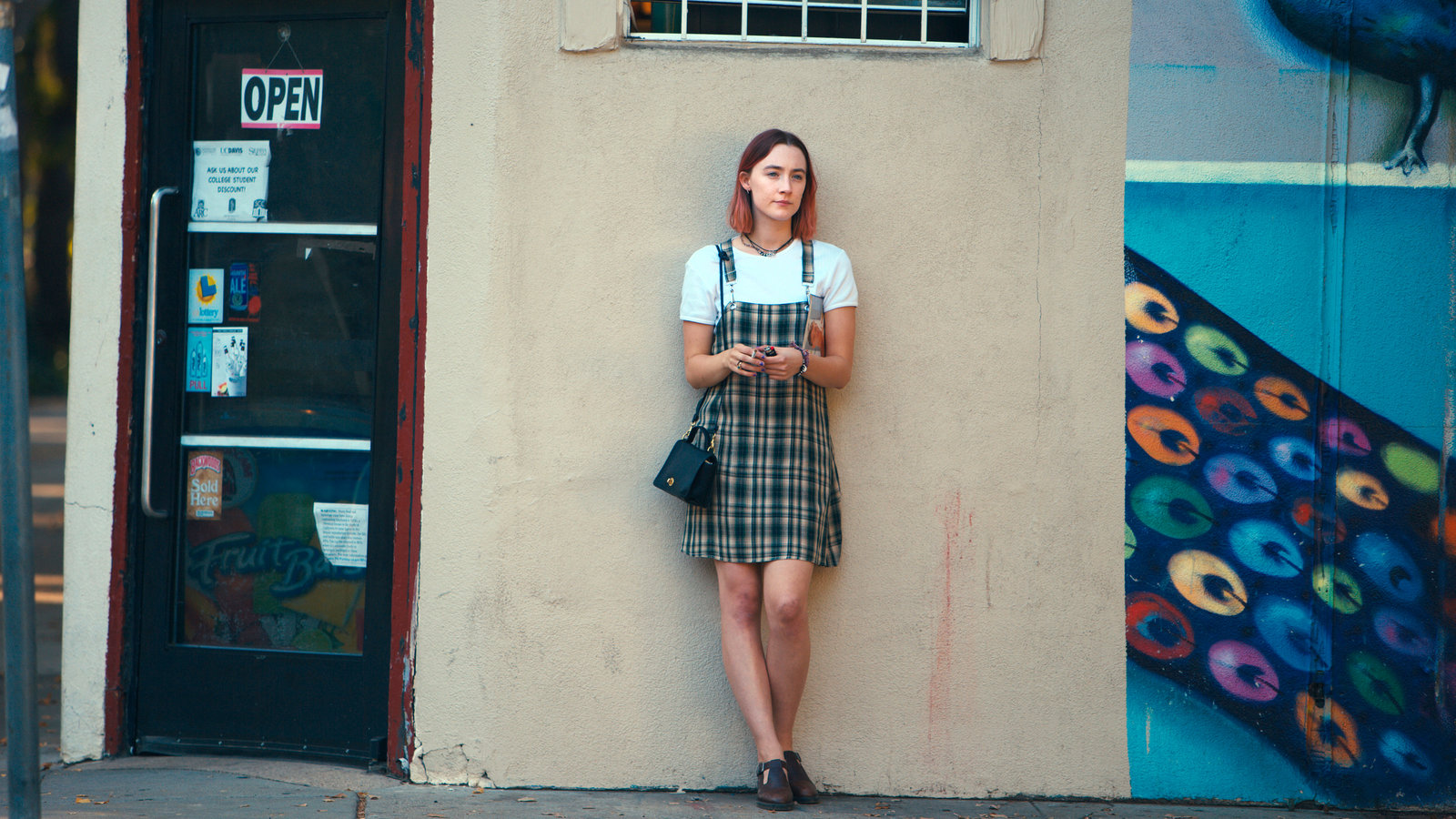One of the very best movies of 2017, Greta Gerwig’s Lady Bird is quite possibly one of the smartest movies ever made about navigating the thorniness of high school, parents and young adulthood. It’s disarmingly funny—maybe funnier than any movie this year—and deeply observed in its depiction of a mother and daughter at cross purposes of idealism, pragmatism and resentments. Gerwig, patron saint of indie movie actresses who has tried her hand at commercial pictures but possesses a most unique sensibility that can only truly spread its wings in the independents, has written and directed a most assured movie that may be only semi-autobiographical in plot, but is cut wholly from the cloth of her offbeat sensibilities. We always knew she was funny, but what a big heart.
Lady Bird, featuring what are sure to be Oscar-nominated performances from star Saoirse Ronan and Laurie Metcalf, is as acutely a written and acted mother-daughter relationship on film as we’ve seen since 1983’s Terms of Endearment, which is not to say that this winning comedy-drama covers the same territory as James L. Brooks’ celebrated weepie, but the power dynamics between parent, child and independence, and a daughter who can do nothing to please her mother, are certainly reminiscent.
The gifted Saoirse Ronan is Christine “Lady Bird” McPherson, a Sacramento high school senior who desperately longs to escape its leafy suburban banalities for New York City, a place she’s never been but imagines an artistic mecca to match her free spirit. Her caustic, passive-aggressive mother Marion (Metcalf, on fire) is an overworked nurse struggling to float the modest household after depressed dad Larry (Tracy Letts) loses his job. Lady Bird, as teens often are, is embarrassed that she comes from “the wrong side of the tracks,” and dismayed at being sent to a Catholic high school for senior year after Marion deems public school too unsafe. After all, her brother, Miguel, witnessed a stabbing.
The film takes place in 2002 with a keen understanding of the haves and have-nots in suburbia, and Lady Bird falls clearly on the side of the latter, as does her best friend (Beanie Feldstein). Poking great fun at Catholic school norms, including an aging nun (Lois Smith) and the priest who runs the theater program (Stephen McKinley Henderson, wonderful), Gerwig posits Lady Bird as a virginal theater geek looking for love and connection and adventure, which begin with a fellow actor and potential boyfriend (Lucas Hedges) before shifting to a handsome rebel (Timothee Chalamet, currently giving the year’s best performance in Call Me by Your Name).
While navigating mom and suitors, she also trades up in friends, desperately longing to elevate her social status and be free of her family’s lower income shackles, a theme in this picture about eschewing the imposition of a life predetermined by where you’re from. She’s not ashamed of her family, but rather their station, and has a touching relationship with disenfranchised dad Letts, who has all he can do just helping to fill out financial aid forms.
Most of all, she wants to get out of California, and though her mother insists she stay in Sacramento (and at times cruelly advises her that she’ll never get a good job anyway), she secretly applies to New York schools thinking that the recent events of 9/11 will allow her, with marginal grades, a greater chance of admission.
This may sound like standard adolescent movie stuff, but the entire enterprise positively glows with optimism, humor and a rebellious heart. This isn’t small stuff—lack of opportunity, smarts, money and parental support—and Gerwig miraculously never loses her comedic footing with a whip-smart, sharp screenplay loaded with zingers and, at times, pain.
Ronan, the miraculous star of Brooklyn and Atonement, both of which netted her Oscar nods, is breathtaking in the role and up to its demands of comedy and pathos. A few knee-jerk journalists have mistakenly labeled her a spoiled brat, but a broader take is one of a too-smart-for-her-means young person planning a future against almost insurmountable odds. It’s a lot for a gentle comedy like Lady Bird to accommodate, but Gerwig and Ronan make it sing in every scene.
Metcalf delivers a fierce performance as a demonstrative, sometimes demeaning condescension, a woman who in spite of herself simply cannot let go of her own feeling of inequity long enough to support her daughter’s dreams of becoming everything she did not. Every interaction between them is an opportunity to exert an often negative worldview, where opportunities are not a given but a luxury. And Gerwig paints her as a woman very entitled to that view—someone working double-shifts for a largely unemployable husband who, partially out of envy and partially out of practicality, cannot allow her daughter to dream big.
One of the year’s very best films.
4 stars.



